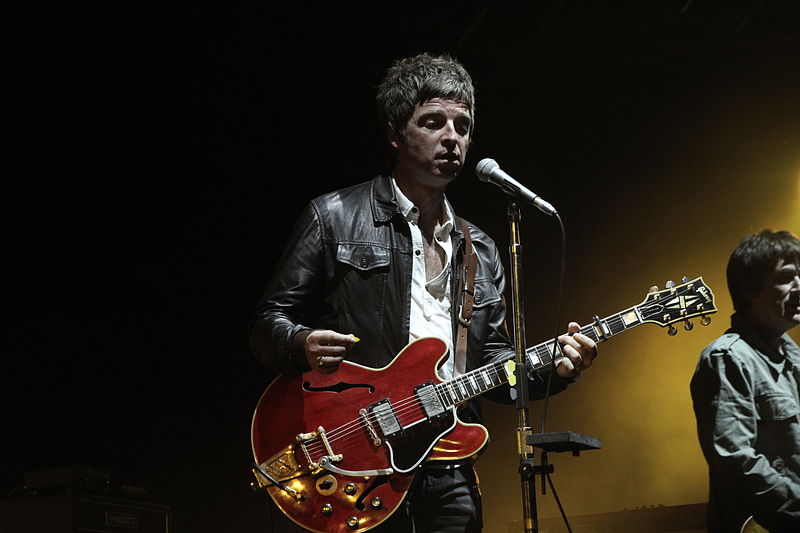Thirty years on, Oasis’ ‘(What’s the Story) Morning Glory?’ sounds even better today
I have talked a lot about those elusive, near-perfect albums in my recent contributions to The Boar, such as Bruce Springsteen’s Born to Run. Another album which is the model expression of that, celebrating a major anniversary this year, is Oasis’ (What’s the Story) Morning Glory? (1995).
On a recent flight to Newark, in which I investigated the Major League Soccer experience for the Sport section, I decided to pass the time by rewatching Mat Whitecross’ Oasis: Supersonic documentary (2016). Not only did the documentary feel strange, in a good way, given the band’s much-anticipated reunion announced last summer, but it made me feel differently about Morning Glory and the band’s most-abused song, ‘Wonderwall’.
I had never been a fan of ‘Wonderwall’. I wasn’t even a fan of the Gallagher brothers and the band themselves until a couple of years ago, preferring instead the fantastical music of American rock gods like Springsteen and Seger, and the far less sandpaper-like personalities of British bands such as Def Leppard. Even though the song is very much overplayed, I have since then found myself able to listen to ‘Wonderwall’ in equal regard to the other tracks on the album. There is something captivating about Liam’s droning vocals and Noel’s lyrics – “I don’t believe that anybody feels the way I do about you now” – even if nobody, not even he, really knows what a “wonderwall” is.
If we must narrow it down to one thing only, our contributions to music from this tiny group of islands in the North Atlantic is what makes us most proud of where we come from
As producer Owen Morris articulated, Noel emphasised writing “huge” choruses on Morning Glory, quite a departure from the rawness and attitude of their debut album, Definitely Maybe (1994). Fellow ballad ‘Don’t Look Back in Anger’ is another track that marks this shift, and like ‘Wonderwall’, precedes the band’s reputation. While similarly overplayed, I have never not loved ‘Don’t Look Back in Anger’. It’s one of those songs you always find yourself singing along to. In fact, I remember a number of years ago encountering a video from 2017 of thousands of England fans belting out a spine-tingling rendition of the song at a game in Paris. If we must narrow it down to one thing only, our contributions to music from this tiny group of islands in the North Atlantic is what makes us most proud of where we come from.
The hard rocker ‘Some Might Say’, the first single released on Morning Glory, marked the final contributions of original drummer Tony McCarroll to Oasis. Reaching number one in the United Kingdom (alongside ‘Don’t Look Back in Anger’), ‘Some Might Say’ is characterised by a euphoric interplay between Liam’s leading and Noel’s backing vocals, as well as two killer Noel guitar solos. The call-and-response of “You know what some might say”, sung back and forth between the two Gallaghers, is perhaps the strongest climax to an Oasis song in their entire discography. On the other side of the coin, ‘Morning Glory’ probably demonstrates the strongest intro to any Oasis song, driven by Noel’s whining guitar riff.
The mellow ‘She’s Electric’ is another track characterised by very lenient rhyming couplets penned by Noel, but the jangling guitars and Liam’s use of falsetto in the chorus – “And I want you to know / I’ve got my mind made up now” – more than makes up for this. ‘Champagne Supernova’ brings the album to a gentle yet euphoric close and stands today as one of the band’s most acclaimed songs.
Morning Glory soon accomplished something Definitely Maybe did not: huge populist appeal
The sheer number of quality tracks omitted from Morning Glory only accentuates the strength of Noel’s songwriting. ‘Slide Away’, ‘Acquiesce’, ‘The Masterplan’, and a far better rendition of Slade’s ‘Cum on Feel the Noize’ than Quiet Riot managed (a staple of Oasis’ live performances at the time) were all left off the original release and relegated to B-sides.
The initial disappointment from mainstream music critics upon the album’s release was soon overlooked, as Morning Glory soon accomplished something Definitely Maybe did not: huge populist appeal. Such an accomplishment was clearly helped by the shift in Noel’s songwriting. Morning Glory also saw the recording debut of drummer Alan White who replaced the departed McCarroll; Whitecross’ documentary does not shy away from McCarroll’s rather ruthless departure from the band, principally roused by Noel’s criticism of his supposedly subpar playing.
Still, the Gallagher brothers were able at least to put their money where their mouth is with probably the greatest consecutive album releases of all time. Apart from Def Leppard’s Pyromania (1983) and Hysteria (1987), of course.

Comments